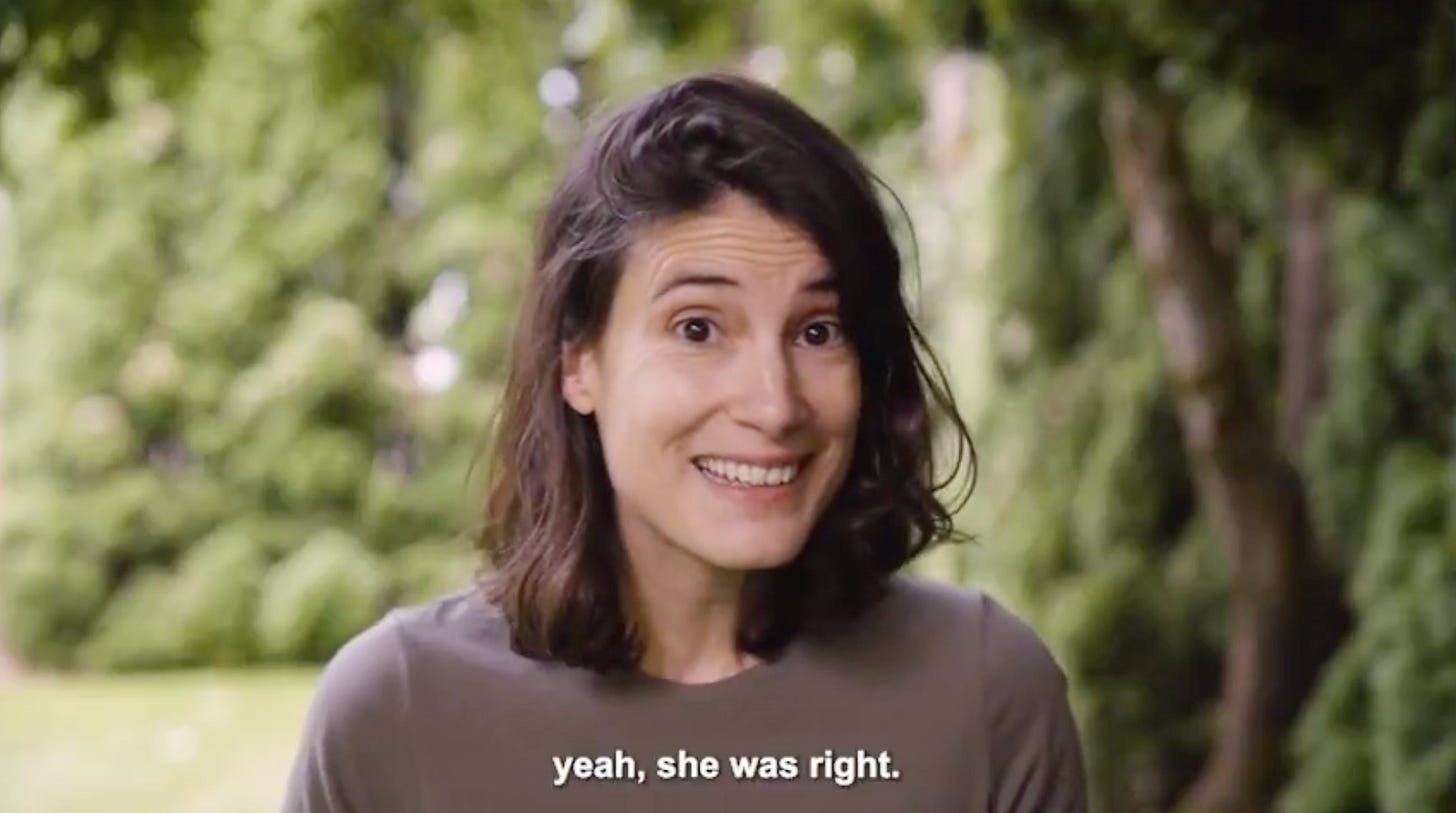Chris Hayes is Bananas
Inflation, regulation, and the policy of winners. MGP on MSNBC, and Jared Golden proven right.
Have you seen the video of Marie Gluesenkamp Perez explaining her bill to roll back an absurd regulation on daycare providers? You should check it out.
But first, watch her primetime appearance on MSNBC1 with Chris Hayes where he asks about her viral video. Because their conversation shows both why MGP is ready for primetime, and why liberal media may not be ready for reality.
Hayes starts by telling viewers that the segment will help them understand how MGP won her rural red district. This is part of a series on winners, following the previous night’s interview with Andy Beshear (who we covered in How a Democrat Won in Kentucky).
This is good. Democrats need to listen to the winners, and millions watch MSNBC.
But as the segment begins, it is immediately clear he’s on the wrong page. He starts by declaring the district “50/50” before MGP has to correct him that it actually favors Republicans by four points. Is the host of a primetime political show so unprepared? Or just in disbelief about Democrats winning Trump voters?
It is likely the latter. It’s worth a minute to learn about Chris Hayes, an influential figure slash caricature of progressive politics. While at a prestigious New York City exam school, he directed classmate Lin Manuel Miranda’s first play. He studied philosophy at Brown, where “the intellectual culture of the place I was with and the people I was with was very influenced by postmodern critique, by Foucault.” His brother ran Jamaal Bowman’s campaigns.
In 2004, while “scratching out a living as a freelance lefty writer and doing a little theater”2, Hayes went out to knock some doors in Wisconsin. Naturally, he wrote about it in The New Republic.
Hayes sought to understand “how could any halfway intelligent human remain undecided for long”. After knocking on 1,000 doors, he concludes that such voters are deserving “of the derision that the political class has heaped on them”:
Undecided voters aren’t as rational as you think. Members of the political class may disparage undecided voters, but we at least tend to impute to them a basic rationality. We’re giving them too much credit.
Undecided voters don’t think in terms of issues. Perhaps the greatest myth about undecided voters is that they are undecided because of the “issues” … More often than not, when I asked undecided voters what issues they would pay attention to as they made up their minds I was met with a blank stare, as if I’d just asked them to name their favorite prime number.
At first I thought this was a problem of simple semantics—maybe, I thought, “issue” is a term of art that sounds wonky and intimidating, causing voters to react as if they’re being quizzed on a topic they haven’t studied. So I tried other ways of asking the same question: “Anything of particular concern to you? Are you anxious or worried about anything? Are you excited about what’s been happening in the country in the last four years?”
These questions, too, more often than not yielded bewilderment. As far as I could tell, the problem wasn’t the word “issue”; it was a fundamental lack of understanding of what constituted the broad category of the “political.” The undecideds I spoke to didn’t seem to have any intuitive grasp of what kinds of grievances qualify as political grievances.
OK, now watch Marie on daycare regulations:
Voters are giving MGP tangible political issues that she can address to make their lives easier in their shared community - and she is winning over roughly 1 of every 11 Trump voters.
Ivy League theatrical philosopher Chris Hayes went to Wisconsin to see if undecided voters were as dumb as he thought, and it turned out they were even dumber in his eyes.
Maybe both Hayes and MGP are getting what they are looking for. Like MGP, we are looking to win. And it turns out that the winners know a thing or two about policy as well.
Who was right about inflation?
Jared Golden ran nine points ahead of Kamala Harris, the most of any Democrat who won re-election. Golden won because he prioritized the issues most relevant to his voters. Turns out those same issues also would have produced better policy.
Golden opposed the American Rescue Plan, saying, “Borrowing and spending hundreds of billions more in excess of meeting the most urgent needs poses a risk to both our economic recovery and the priorities I would like to work with the Biden Administration to achieve, like rebuilding our nation’s infrastructure and fixing our broken and unaffordable healthcare system.” He released a detailed press release covering every aspect of the legislation.
He proudly highlighted his opposition to the American Rescue Plan in his ads, noting that he was “the only Democrat to vote against trillions of dollars of Biden’s agenda, because I knew it would make inflation worse.”




